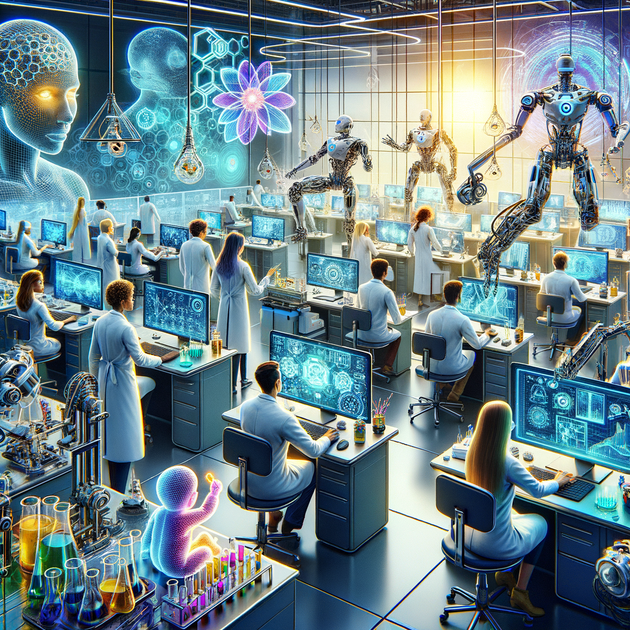The Hidden Power of Experimentation: How AI Is Shaping Our Future
Imagine a world where your wildest dreams and most innovative ideas are brought to life by machines capable of learning and evolving. This isn’t the plot of a sci-fi movie—it’s the exciting reality of artificial intelligence (AI). From enhancing healthcare to revolutionizing transportation, AI’s potential is boundless, but it relies heavily on one crucial element: experimentation.
The Role of Experimentation in AI Development
At the heart of AI’s groundbreaking advancements lies a relentless cycle of experimentation. This iterative process of trial and error is not just a cornerstone but the lifeblood of AI innovation. Just as a scientist in a lab tests hypotheses to discover new compounds or phenomena, AI researchers and engineers continuously experiment with algorithms, data sets, and models to uncover new capabilities and applications.
Example: Google’s AlphaGo is a prime example of how experimentation drives AI progress. Through millions of games played against itself, AlphaGo refined its strategies and eventually defeated human world champions in the ancient game of Go, showcasing AI’s potential to learn and surpass human capabilities in complex tasks.
From Concept to Reality: Real-World Applications
Healthcare Revolution
AI’s experimental nature has paved the way for significant advancements in the healthcare sector. Machine learning models are now capable of diagnosing diseases, predicting patient outcomes, and personalizing treatment plans, all thanks to extensive experimentation.
Take IBM’s Watson, for example. Originally known for winning Jeopardy, Watson’s deep learning capabilities were repurposed to analyze medical literature and provide oncologists with evidence-based treatment recommendations, significantly improving patient care.
Transforming Transportation
In the realm of transportation, self-driving cars exemplify AI’s experimental journey. Each mile driven by autonomous vehicles like Tesla and Waymo contributes to an ever-growing data set. This continuous experimentation allows these vehicles to better navigate complex environments, avoid accidents, and improve overall safety.
The Ethical Dimension: Navigating Bias and Fairness
As AI’s capabilities expand, so too does its responsibility. Experimentation must be conducted with a keen eye on ethical considerations, such as bias and fairness. Without careful oversight, AI systems can perpetuate biases present in the data they are trained on, leading to unfair and potentially harmful outcomes.
Companies like Google and Facebook have established ethical guidelines and dedicated teams to oversee AI experiments, ensuring they align with broader societal values and legal standards.
Case Study: OpenAI’s development of GPT-3 involved extensive ethical reviews and guidelines to prevent misuse, showcasing the industry’s commitment to responsible AI experimentation.
Personal Insights: The Future of AI Experimentation
Reflecting on the current landscape, it is clear that we are only scratching the surface of AI’s potential. The ongoing cycle of experimentation will continue to unlock more advanced and beneficial applications. As AI systems become more sophisticated, their ability to experiment and learn autonomously will significantly accelerate innovation.
Imagine AI-driven research labs where machines not only perform experiments but also generate hypotheses and design new experiments. Such a future is within our grasp, promising unparalleled advancements across various fields.
Conclusion: Embrace the Journey
AI’s path forward is undoubtedly filled with challenges and uncertainties, but it is through the art of experimentation that we will navigate these complexities and unlock AI’s vast innovative potential. Each experiment, successful or not, contributes to a growing repository of knowledge, propelling us towards a future where AI not only augments human capabilities but also catalyzes new realms of possibility.
What are your thoughts on the role of experimentation in AI development? Share your insights and experiences in the comments below.
